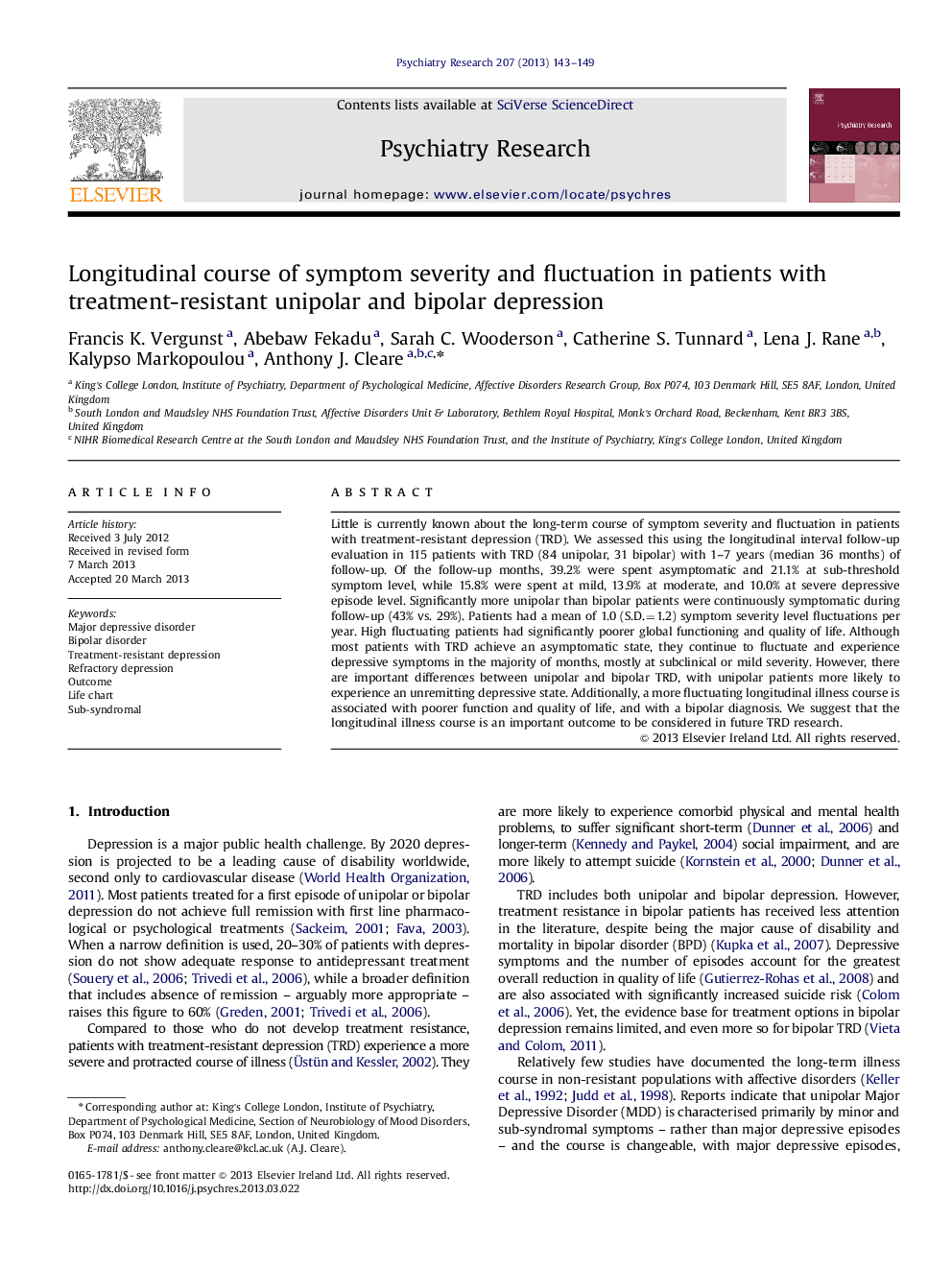| کد مقاله | کد نشریه | سال انتشار | مقاله انگلیسی | نسخه تمام متن |
|---|---|---|---|---|
| 332111 | 545640 | 2013 | 7 صفحه PDF | دانلود رایگان |

Little is currently known about the long-term course of symptom severity and fluctuation in patients with treatment-resistant depression (TRD). We assessed this using the longitudinal interval follow-up evaluation in 115 patients with TRD (84 unipolar, 31 bipolar) with 1–7 years (median 36 months) of follow-up. Of the follow-up months, 39.2% were spent asymptomatic and 21.1% at sub-threshold symptom level, while 15.8% were spent at mild, 13.9% at moderate, and 10.0% at severe depressive episode level. Significantly more unipolar than bipolar patients were continuously symptomatic during follow-up (43% vs. 29%). Patients had a mean of 1.0 (S.D.=1.2) symptom severity level fluctuations per year. High fluctuating patients had significantly poorer global functioning and quality of life. Although most patients with TRD achieve an asymptomatic state, they continue to fluctuate and experience depressive symptoms in the majority of months, mostly at subclinical or mild severity. However, there are important differences between unipolar and bipolar TRD, with unipolar patients more likely to experience an unremitting depressive state. Additionally, a more fluctuating longitudinal illness course is associated with poorer function and quality of life, and with a bipolar diagnosis. We suggest that the longitudinal illness course is an important outcome to be considered in future TRD research.
Journal: Psychiatry Research - Volume 207, Issue 3, 30 May 2013, Pages 143–149